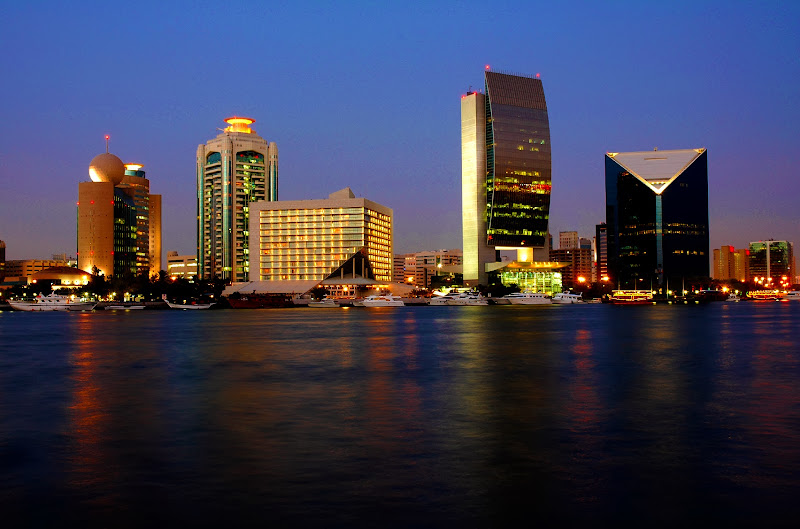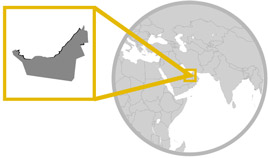Money
The United Arab Emirates used Arabic Emirati Dirham (AED) as their currency, one Dirham is equivalent to 100 Fils, another currency of smaller value. Coins come in 1, 5, 10, 25 and 50 Fil variants as well as 1 Dirham coins. Concerning bank notes, 5, 10, 20, 50, 100, 200, 500 and 1000 Dirham variants are available. On average, AED 1 is equal to about $0.27 or £0.16.
Economy
After Saudi Arabia, the economy of the United Arab Emirates is the second largest in the Arab World with an AED 1.5 Trillion (About $408 Billion or £246 Billion) GDP. Since the UAE’s independence in 1971, the economy has grown by over 230%. A third of this comes from oil revenue alone but Tourism is also incredibly prominent. Across the nation over AED 1.3 Trillion ($354 Billion or £213 Billion) worth of construction projects is taking place and this in turn is helping the UAE dramatically diversify its sources of income.
Totalling over AED 1 Trillion ($273.5 Billion or £165 Billion) worth of imports in 2012, the UAE became the largest consumer in the Arab World with its exports making it the second largest exporter in the world at over AED 1.1 Trillion ($314 Billion or £189.5 Billion). The main trading partner of the UAE is India, which additionally has the UAE as its main trading partner at over AED 275 Billion ($75 Billion or £45 Billion).
On average, mean wages were AED 167.52 ($45.61 or £27.55) an hour and only 4.6% of the population are considered to be unemployed.

Banking
Luckily, ATMs are widespread all across the UAE so access to money is safe, secure and straightforward, most banks will charge you a fee to withdraw money held by another bank’s ATM. Across the UAE, Cheques are used the most often for paying rent, bills, fees and for generally large payments, Credit Card usage isn’t too rare however.
Banks across the UAE predominantly offer three main types of accounts, these include Current Accounts which work near-identically to other current accounts worldwide, Savings Accounts which work similarly to most globally used savings accounts and Term Deposit Accounts which offer higher interest rates than savings accounts but don’t allow for instant access to savings.
Most Banks will ask you for a Certified Copy of a Valid UAE Residency Visa and a Certified Copy of a Valid Passport but may ask for additional documents.
Taxes
All foreign banks are charged at 20% of their taxable income in the Emirates of Dubai, Sharjah and Dubai and Oil Companies pay 50% of their taxable income in the Emirates except in Dubai where the rate is an additional 5% higher. Additionally, all production is subject to royalty payments.
Municipal taxes are at 5% for hotel, entertainment & residential premises and 10% for commercial.
All personal income including salary is completely untaxed in all emirates.

